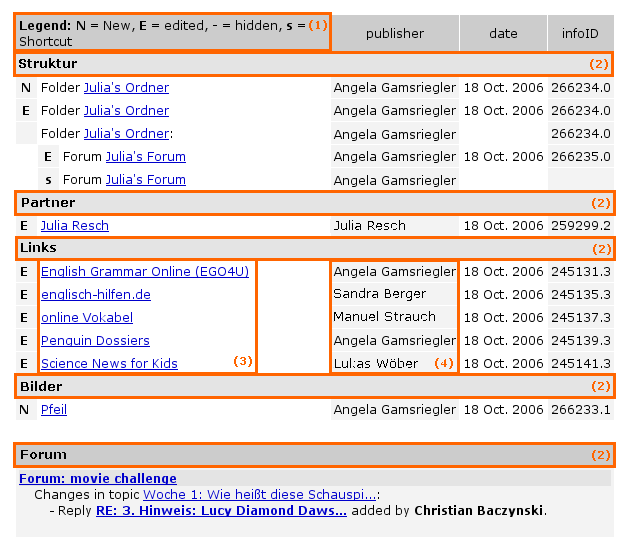
The automatic e-mail notification allows users to stay informed about changes on the platform. Instead of having to check for changes manually, users can choose to be notified via e-mail as soon as content is altered.
Below, you can see a typical example of an e-mail notification:

At the top, you can see the legend (see picture above, point 1). The abbreviations ("N", "E", "-", "s") specify which type of change took place. This way you can see whether a text has been created ("N"), edited ("E") or hidden ("-"). Moreover, you can see where shortcuts have been created ("s").
Changes are broken down by (see picture above, point 2). In order to view a fact, simply click on its title (see picture above, point 3). Your web browser opens automatically. If a fact can only be viewed by users, you will be asked to log in.
In addition, the e-mail notification tells you who made the change (see picture above, point 4) and when. Moreover, you can see the infoID of the fact.
The level of detail of the automatic e-mail notification can be adjusted on different levels:
Notification for folders:
notification if there is a change in one or more specific folder(s)
Notification for services:
notification about changes in all facts of one or more particular service(s)
Notification for forum:
notification selection can be limited to individual forums
In order to receive notification e-mails, certain changes must be made in the "“.
There are two possibilities to get to the notification settings interface:
|

